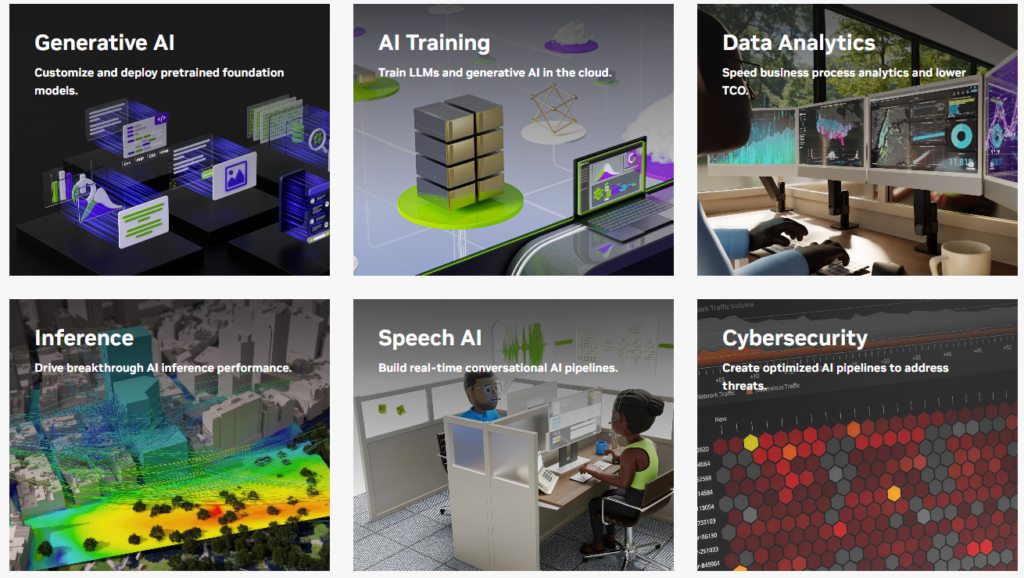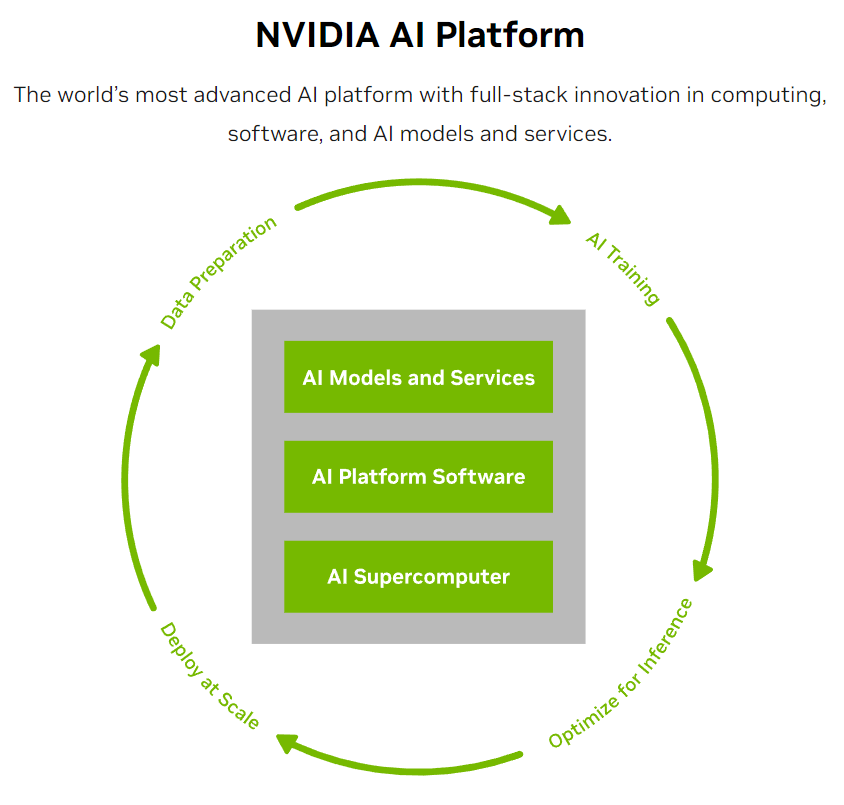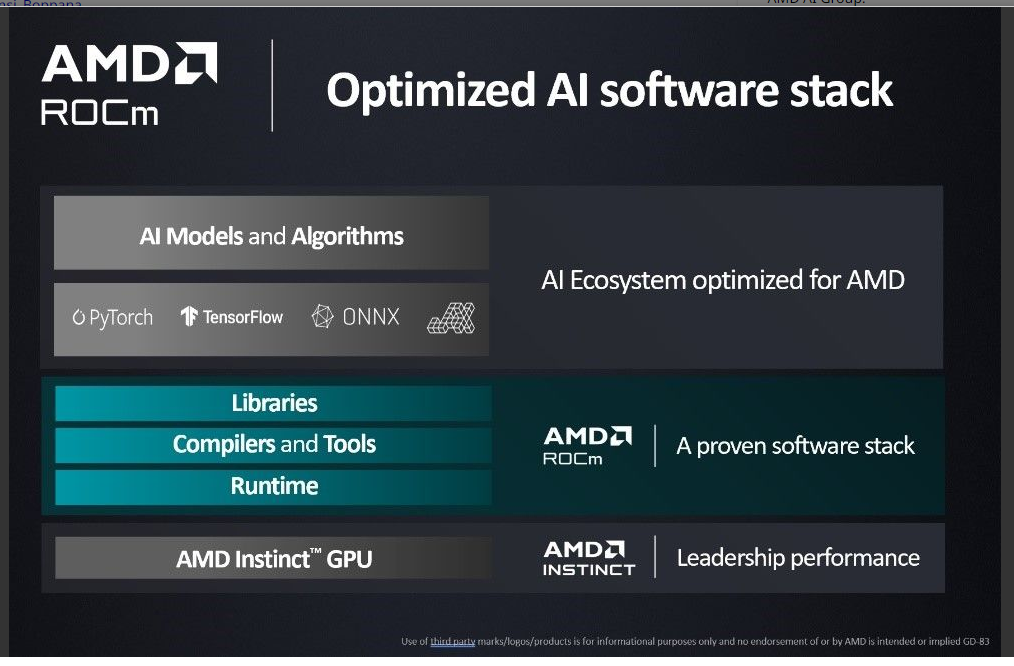Artificial intelligence (AI) is rapidly transforming the world around us, from self-driving cars to facial recognition to medical diagnosis. AI is now being employed to tackle some of the world’s most challenging problems.
At the heart of many AI applications lies a potent piece of hardware known as an AI GPU. AI GPUs are specialized processors designed to accelerate the training and inference of AI models.
If you’re new to AI GPUs or simply curious about how they function, this article is tailored for you. In this comprehensive guide, we’ll cover all the essential aspects of AI GPUs, including:
What are AI GPUs?
AI GPUs, short for Artificial Intelligence Graphics Processing Units, are specialized processors designed to accelerate the training and inference of AI models. These GPUs are typically more powerful and efficient than general-purpose GPUs for AI tasks.
How do AI GPUs work?
AI GPUs operate by performing parallel computations. This means they can break down large tasks into smaller subtasks and process them simultaneously. This capability is essential for many AI tasks, such as deep learning, which involves performing billions of calculations on extensive datasets.
AI GPUs also feature specialized hardware designed to expedite common AI operations, such as matrix multiplication and convolution. This specialization can lead to significant speed improvements in training and inference for AI models.
Want to know more about our Tech Solutions? Visit us at www.nesesho.com
What are the benefits of using AI GPUs?
Using AI GPUs offers several advantages, including:
Faster Training and Inference: AI GPUs significantly speed up the training and inference of AI models due to their ability to perform parallel computations, a crucial element in many AI tasks.
Improved Accuracy: AI GPUs can enhance the accuracy of AI models by enabling the training of larger and more complex models capable of learning intricate data patterns.
Reduced Costs: Utilizing AI GPUs can help lower the costs of running AI workloads. These GPUs are more energy-efficient than general-purpose CPUs for AI tasks, resulting in reduced energy consumption and hardware expenses.
What are some common use cases for AI GPUs?
AI GPUs find applications across various industries, including healthcare, finance, manufacturing, and transportation. Here are a few examples of common use cases:
Healthcare: AI GPUs are employed in drug development, disease detection, and medical diagnosis, such as training deep learning models to analyze medical images and identify cancer cells.
Finance: AI GPUs aid in fraud detection, optimizing trading strategies, and risk management by training deep learning models to identify fraudulent transactions in real time.
Manufacturing: These GPUs enhance product quality, production line optimization, and predictive maintenance by training deep learning models to inspect products for defects and predict machine failures.
Transportation: AI GPUs contribute to the development of self-driving cars and improved traffic management. They help train deep learning models to recognize objects on the road and make safe driving decisions.
How to choose the right AI GPU for your needs
When selecting an AI GPU, consider the following factors:
Budget: Determine your budget beforehand, as AI GPUs can be costly.
Performance: Assess the performance requirements of your AI workloads, as some tasks, like deep learning, demand more powerful GPUs.
Memory: AI models may require substantial memory, so choose a GPU with sufficient memory capacity.
Software Compatibility: Ensure that the chosen AI GPU is compatible with the software development frameworks and libraries you intend to use.
After evaluating these factors, you can compare different AI GPUs to find the one that best suits your requirements.
Conclusion
AI GPUs are potent tools that can accelerate your AI initiatives. If you’re serious about AI, investing in an AI GPU is a worthy consideration.
Here are some additional insights regarding AI GPUs and their future impact:
AI GPUs are still relatively new technology, but they are rapidly advancing. New AI GPU architectures are under development, promising even greater power and efficiency.
As AI GPUs become more powerful and affordable, their applications will expand, ranging from new medical treatments to more realistic video games and innovative art and music forms.
AI GPUs play a crucial role in the development of Artificial General Intelligence (AGI), a type of AI as intelligent as a human. While AGI is on the horizon, AI GPUs are contributing to its realization.
In summary, AI GPUs are versatile and powerful technologies that are reshaping the world. As they continue to evolve, their role in our lives will become increasingly significant.
Want to know more about our Tech Solutions? Visit us at www.nesesho.com



